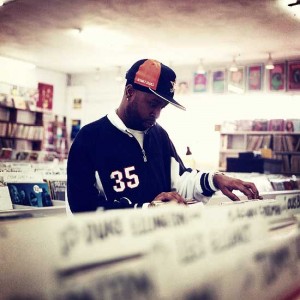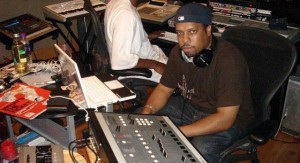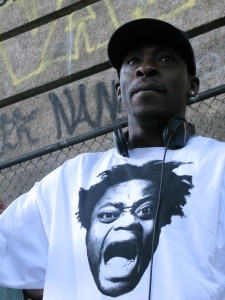Listening Guide in Samples: Bob James

Jazz keyboardist and composer Bob James is also one of the most sampled musicians in the history of hip-hop. He’ll perform in Ann Arbor on November 15, 2014. Photo courtesy of the artist.
Hip-hop appropriated the soul and rhythms of many genres of music and cultures, and hip-hop is contagious. It’s a force that blasted its way out of the inner city into bedrooms and basements everywhere.
Hip-hop is rooted in making something out of nothing, using the few tools at the musicians’ disposal to create art that paints a picture of a part of society largely ignored. Before hip-hop’s inception, jazz, blues, soul music, and rock-n-roll were the prior generations’ outlets for creating a rich counter-culture that would influence the communities of the future. Hip-hop was an explosive melting pot of all of these cultures, and so it wasn’t shocking that many of musicians who had begun to experience success in earlier decades enjoyed a new life through sampling in hip-hop. One such example is jazz pianist Bob James.
From One by Bob James:
In the 70s, James was arranging and producing with many fellow jazz artists, including on saxophonist Grover Washington Jr.’s classic albums, while also putting out his own solo albums like One or Two. These albums and his other music would become the foundation of many hip-hop staples of the 80s and 90s. The worlds Bob James would create during this time, while working with musicians such as saxophonist Dave Sanborn, singer Hubert Laws, and drummer Idris Muhammad, to name a few, were filled with a massive soul that mixed dreams of fantastical lands with the struggles of reality. The culture of hip-hop would reinvent that feeling in the following generations.
“Angela” by Bob James:
Bob James, who is an alumnus University of Michigan, would go on to success in the jazz world, but his music really entered American living rooms everywhere when he penned “Angela,” the theme music for the popular TV show Taxi that aired from 1978 to 1983 and spawned a slew of well-known actors and comedians. Later on, “Angela” would be sampled by Bay Area hip-hop group Souls Of Mischief for their song “Cab Fare”, which was slated for their 1995 full length album No Man’s Land but was unfortunately axed because they could not get the sample legally cleared (it’s out there now, go look for it!).
The works of Bob James have been sampled many times within hip-hop as well as by R&B and drum-n-bass artists, but there are two specific songs that have been used more than anything else and have lead to some well-known hip-hop records.
“Nautilus” by Bob James, sampled:
From the Bob James’ 1974 album One, the closing track titled “Nautilus” has given us great hip-hop songs over the years. As we enter the first few seconds of “Nautilus,” we hear the haunting sounds would be sampled by the legendary producer DJ Premier for Jeru The Damaja’s “My Mind Spray” from his 1994 album The Sun Rises In The East. Then, a few seconds later, right as the song really kicks in, is the sample that the Wu Tang Clan’s The RZA used for fellow group-mate Ghostface Killah’s “Daytona 500” from his 1996 solo album Ironman. “Nautilus” has been sampled in dozens of other songs including by Eric B. & Rakim (“Let the Rhythm Hit ‘Em”) and Soul II Soul (“Jazzie’s Groove”), but it’s the segment about two-thirds into the composition, during another ghostly breakdown, that Run D.M.C. would pick up and turn into the main infectious sample for their renowned record “Beats to the Rhyme.”
“Take Me to the Mardi Gras” by Bob James, sampled:
While the sampling of “Nautilus” spawned many hip-hop tracks, James’s 1975 album Two and the song “Take Me to the Mardi Gras” resulted in some of the most legendary tracks. The bells and drum breaks from “Mardi Gras” would be most famously sampled by hip-hop legends like Run D.M.C. (“Peter Piper”), LL Cool J (“Rock The Bells”), and the Beastie Boys (“Hold It Now, Hit It”). “Take Me to the Mardi Gras” isn’t just the foundation for these celebrated songs, it’s also the backdrop for the sound of late 80s hip-hop culture. Those bells and drums from “Mardi Gras” create the vision of inner city kids break-dancing on the sidewalks, spitting rhymes on the corner, or tagging graffiti on a wall downtown.
Bob James has continued to produce and arrange music as a highly successful solo jazz artist and along with his legendary band Four Play, but his work from the 1970s as a producer, arranger, and as solo artist has left a lasting effect on in the hip-hop world, an effect that will continue for generations of emcees and producers to come.
Interested in learning more? Check out Kelly Frazier’s listening guide to pianist Ahmad Jahmal, who’s also been sampled into the hearts of hip-hop.
Ahmad Jamal: Sampled Into The Hearts Of Hip-hop
Editor’s Note: At 81-years young, pianist Ahmad Jamal is a living jazz legend. And nothing marks the true sign of a legend than transcendence into other genres. Kelly “K-Fresh” Frazier of The Loop Detroit, a blog dedicated to the music of Detroit, writes about Ahmad Jamal’s influence on Hip-hop, bridging generations and keeping traditions alive through the sampling of his music. UMS presents Ahmad Jamal in Hill Auditorium this Saturday, September 17 at 8 pm.
Music has a way of transcending time in ways that are unfathomable. During its ascendance just decades ago, the hip-hop culture would appropriate music ranging from soul to jazz, and everything in between, and revive music, much of it nearly forgotten, from the generations preceding it. Through hip-hop, new groups of music listeners are now able to connect with the same artists that their fathers and grandfathers listened to. While there are countless musicians of yester-years that have found revival in this hip-hop age, the legendary jazz pianist Ahmad Jamal has contributed some of the greatest hip-hop records of all time.
In its infancy, the words spoken in hip-hop were real time accounts of urban struggle and poverty in the inner cities of America. Spawning from impoverished neighborhoods, this culture didn’t have the luxury of real bands with real musicians and real instruments. As a result, hip-hop artists had to borrow, or “sample,” from already-existing pieces of music to make the beats for their songs. These sampled bits, called “breaks,” could be the drums, the piano, the guitar, or anything else, and often looped over and overlaid onto each other to formulate a “band.”
Through sampling, such albums as 1970’s The Awakening, 1973’s Ahmad Jamal ’73, 1974’s Jamal Plays Jamal, and 1974’s Jamalca became forever a part of the hip-hop lexicon, influencing new generations of music producers and musicians. With just a sampling of a mere few seconds from some of Jamal’s work, this classic pianist has reached into the headphones of younger ears.
The best producers have an astute listening ability: to find that perfect loop and translate it into their beats. With these trained ears, many of these producers can find something to sample when the average listener could not. Let’s break down some of the best appropriations of Ahmad Jamal’s music in hip-hop.
At about the 7:29 mark of the nearly 10 minute long “Swahililand” from the Jamal Plays Jamal album, one of the greatest and most recognizable breaks in hip-hop history would occur when a young producer from Detroit named Jay Dee (aka J. Dilla) would sample it for 1996’s “Stakes Is High” from De La Soul. Wildly touted as one of the best songs from De La Soul, it also made Jay Dee one of the most sought after producers in urban music, and he would go on to produce for the likes of Busta Rhymes, Erykah Badu, and Common, among others.
Half way through the song “Dolphin Dance” from 1970’s The Awakening, Chicago producer No I.D. took just a few seconds of Jamal’s piano playing and transformed it into a hip-hop classic with 1994’s “Resurrection” from fellow Chicagoan Common. It’s one of those instances when that ear of No I.D. picked out something so perfect out minutes of piano from Jamal.
While classic hip-hop producers such as Kanye West, Da Beatminerz, Easy Mo Bee, and Buckwild, among others, have sampled Ahmad Jamal’s music, the contributions of giants DJ Premier and Pete Rock have held the most weight. Both producers revolutionized the art of hip-hop sampling in the 1990’s within their own groups (Gang Starr and Pete Rock & C.L. Smooth, respectively), along with producing for a who’s who in urban music. Much of their use of Ahmad Jamal’s material would come with their own groups, but some of the best would be on outside productions.
With the 1994 Nas classic “The World Is Yours,” Pete Rock brought inner city pain and struggle to life as he samples Jamal’s “I Love Music” from 1970’s The Awakening. A few years later, DJ Premier would lift another part of “I Love Music” for the 1996 tune from Jeru The Damaja “Me Or The Papes.” Proof that in the music world, that there are endless ways to sample, it just depends on the ear and creativity of the producer.
DJ Premier would lace Jeru The Dajama again on 1996’s Wrath Of The Math with a Jamal sampled beat for the song “One Day.” This haunting beat would use the strings and the piano of Jamal’s “Don’t Misunderstand” from 1974’s Jamalca, and become one of the most notarized songs in the discography of both DJ Premier and Jeru The Damaja.
For all the artists that have sampled Ahmad Jamal in the past, he has been more than just sampling fodder, but an inspiration to their music as a whole.





